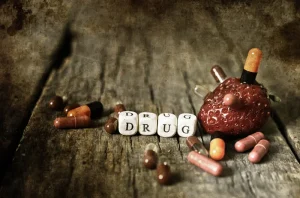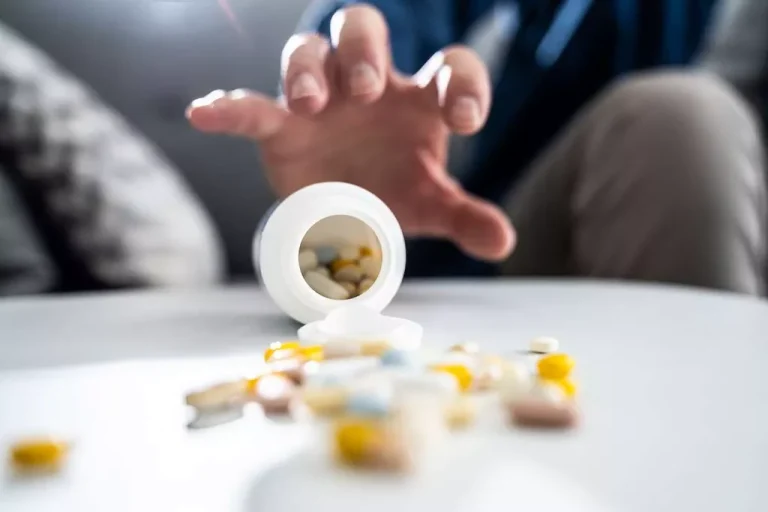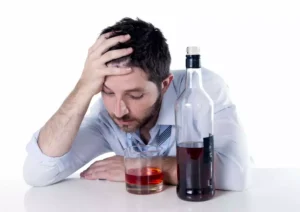Sober living
Alcohol Withdrawal: Symptoms, Treatment & Timeline
The test is free, confidential, and no personal information is needed to receive the result. It’s difficult to predict who will and who won’t experience alcohol withdrawal — and how severe it will be. Some people experience prolonged withdrawal symptoms, like insomnia and mood changes, that can last for weeks or months.
action: ‘healthbeat’
Tremors often affect the hands but can occur elsewhere in the body as well, according to the U.S. Symptoms can become severe, and it can be difficult to predict which people will develop life-threatening symptoms. If a person https://ecosoberhouse.com/ has alcohol use disorder, their body gets used to a certain amount of alcohol in their system. Too much alcohol can irritate the stomach lining, cause dehydration, and lead to an inflammatory response in the body.

How is alcohol withdrawal syndrome diagnosed?
That way, you can reduce your drinking safely and improve your health, well-being and overall quality of life. Long-term heavy alcohol use sets up a tug-of-war-like effect in your body. Alcohol is on one side, slowing down central nervous system (CNS) activity. Your CNS controls your body’s automatic processes like breathing and heart rate. Your CNS is on the other side of the rope pulling back by increasing its own activity to keep things running. Over time, your CNS adjusts and sees that increased activity level as its new normal.
Alcohol withdrawal syndrome
You’re also at risk for AWS if you’ve previously had withdrawal symptoms or needed medical detox for a drinking problem. Alcohol withdrawal syndrome (AWS can cause a range of symptoms, from mild anxiety and fatigue to severe hallucinations and seizures. In extreme cases, it can be alcohol withdrawal life threatening. Talk to your doctor or a drug treatment specialist about what to expect as you experience alcohol withdrawal. Ask your doctor whether any medications may help in the process. Identify a family member or friend who you can call on to provide emotional support.

Alcohol withdrawal delirium (AWD) is the most serious form of alcohol withdrawal. It causes sudden and severe problems in your brain and nervous system. Any information published on this website or by this brand is not intended as a substitute for medical advice, and you should not take any action before consulting with a healthcare professional. Carbamazepine works by slowing down electrical signals in the brain that can cause symptoms.
Learn more about the many benefits and features of joining Harvard Health Online »
- They can help you quit drinking in a safe environment and prevent serious symptoms of alcohol withdrawal.
- Those with severe AWS experience severe anxiety and moderate to severe tremor, but they do not have confusion, hallucinations, or seizures.
- Talk to your doctor if you’re concerned about your drinking habits.
- Alcohol withdrawal that progresses to delirium tremens causes intense hallucinations, as well as severe confusion, disorientation, and agitation.
- People who have an addiction to alcohol or who drink heavily on a regular basis and are not able to gradually cut down are at high risk of AWS.
- These first few weeks are critical because they are when the risk of relapse is highest.
Moderate symptoms of alcohol withdrawal may last up to 6 days, whereas severe symptoms may last for 5 to 7 days. In delirium tremens, the brain is not able to smoothly readjust its chemistry after alcohol is stopped. This creates a state of temporary confusion and leads to dangerous changes in the way your brain regulates your circulation and breathing. The body’s vital signs such as your heart rate or blood pressure can change dramatically or unpredictably, creating a risk of heart attack, stroke or death. They can be managed with prescribed medications such as benzodiazepines.

Benzodiazepines are first-line therapy for moderate to severe symptoms, with carbamazepine and gabapentin as potential adjunctive or alternative therapies. Physicians should monitor outpatients with alcohol withdrawal syndrome daily for up to five days after their last drink to verify symptom improvement and to evaluate the need for additional treatment. Primary care physicians should offer to initiate long-term treatment for alcohol use disorder, including pharmacotherapy, in addition to withdrawal management.

Get the latest in health news delivered to your inbox!
- The body’s vital signs such as your heart rate or blood pressure can change dramatically or unpredictably, creating a risk of heart attack, stroke or death.
- Not only is exercise one of the most effective natural remedies for alcohol withdrawal, but it’s also good for your self-confidence and recovery.
- The final reference list was generated on the basis of relevance to the topics covered in this review.
